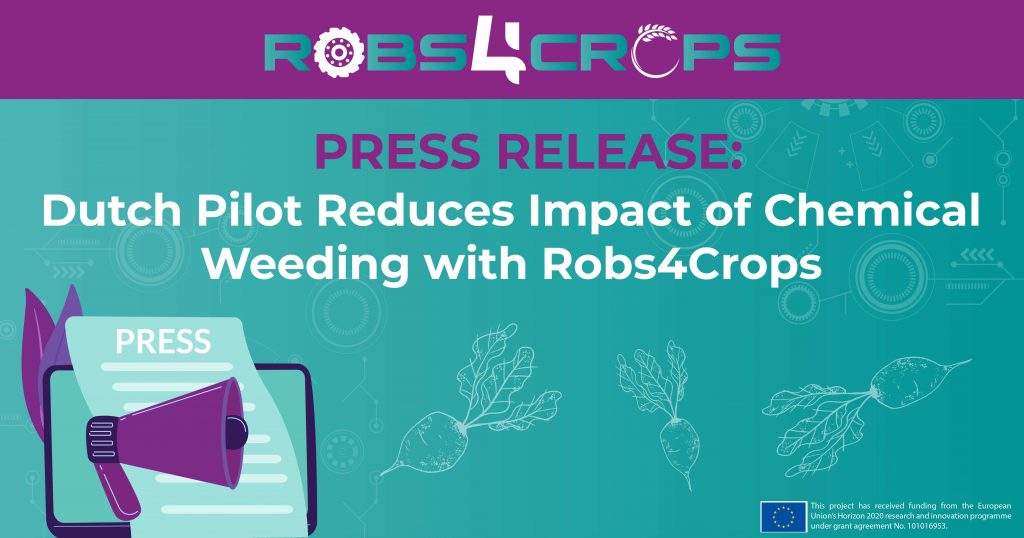The Robs4Crops project, a four-year Horizon 2020 initiative, has successfully concluded, advancing sustainable agricultural practices with cutting-edge robotic technology. The collaborative effort brought together 16 partners across eight European countries to develop smart implements, autonomous vehicles, and advanced planning software, streamlining key farming processes while reducing dependence on human labor.
The project included large-scale pilot programs across Europe in diverse settings such as vineyards, arable fields (sugar beets, pumpkins), and apple orchards in Spain, France, Greece, and the Netherlands. These pilots demonstrated innovative applications of robotics for tasks like mechanical weeding and precision spraying, highlighting their potential to revolutionize sustainable and efficient farming practices.
Key Success: Using Innovative Tools for Meticulous Weeding
In the Netherlands, a pilot project successfully showcased how robotic mechanical weeding can aid when dealing with slow-growing crops such as sugar beet. The use of the Robotti robot, equipped with forward- and rearward-looking cameras, captured invaluable before and after images. This, along with other technologies and algorithm used, helped thoroughly evaluate the weeding process quality. The project also utilised the Steketee mechanical weeder, and Fusebox – a state-of-the-art tool and smart implement that ensures electrical integrity and safety of the robotic platform. The advanced technology was further aided by the Farming Controller, an open-source digital twin software for planning, scheduling, and optimizing agricultural production by coordinating robots, implements, and machinery.
“The pilot progressed smoothly – even with challenges of wet fields, as we had to skip most of the wet parts at times. It successfully completed weeding across multiple plots,” said Kasper van Tilburg from Wageningen University and Research. “More than 5 weeding passes were conducted just in spring and summer 2024 across 4 fields. We have collected useful data for developing algorithm with cameras during the process, ensuring optimal operational success.”
In 2024, the pilot covered several key plots, including Van Duinhoven Field (4.5ha), that was divided into a Triangle Plot and a Square Plot, as well as Vredepeel, a Test Farm with two small plots (Plot A and Plot B), with a variety of environmental and technological assessments. Furthermore, the pilot hosted interactive demonstrations both on field and on international fairs, leading to a number of 76,000+ attendees that had access to a platform for hands-on learning, knowledge exchange, and collaboration with members of the broader agricultural community.
Next Steps: Advancing Innovation and Sustainability in Agriculture
Moving forward, Robs4Crops will focus on scaling the adoption of robotic technologies across European farming systems by supporting commercialization and forming partnerships with agricultural stakeholders. Efforts will center on facilitating knowledge exchange, providing training to farmers, and promoting hands-on learning to ensure smooth integration of mechanical weeding innovations. Additionally, the project will continue research to refine robotic technologies, enhance sensor capabilities, and explore AI-driven solutions. These actions will ensure the long-term impact of the project by advancing sustainable, efficient, and environmentally responsible farming practices.
Collaborating Partners
The pilot brought together key partners to deliver its success, including AgroIntelli, Stichting Wageningen Research, Abemec, Smart Agri Technology B.V., and the Agricultural University of Athens. These organizations played vital roles in supporting technological innovation, operational deployment, and research insights that contributed to the pilot’s achievements.
For more information on Best Practices and Lessons Learned from the four pilot projects within Robs4Crops, visit: robs4crops.eu/trials.

